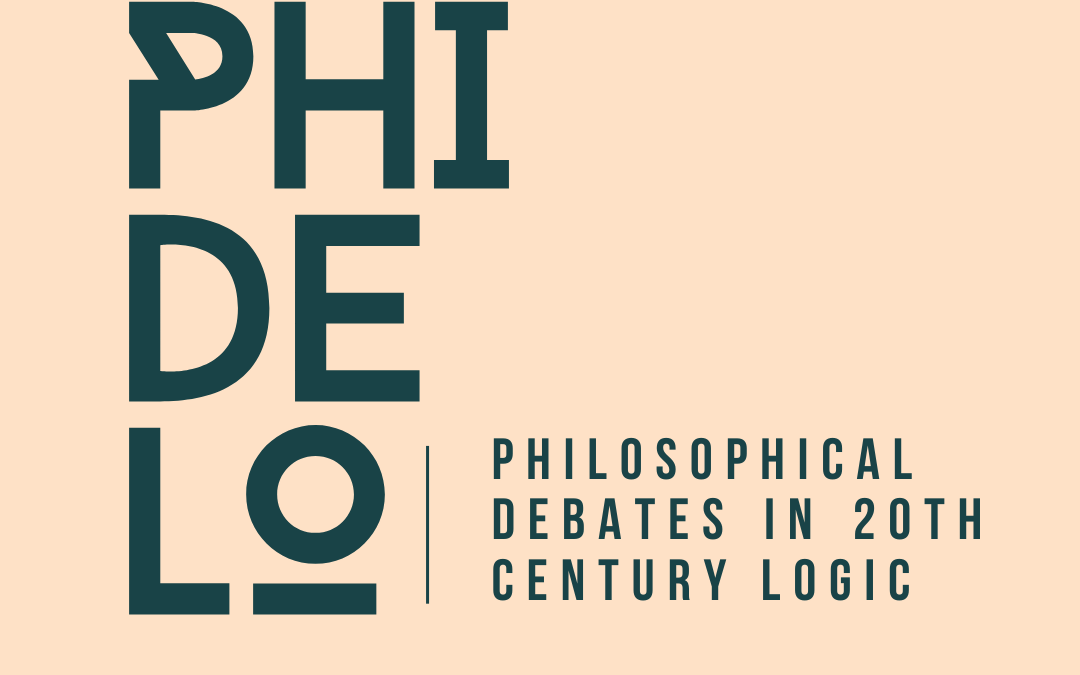María José Frápolli Sanz (IP) (UGR)

María José Frápolli is a Logic and Philosophy of Science professor at the Department of Philosophy, University of Granada. She has been Honorary Professor at University College London (UK) and Marie Sklodowska-Curie Fellow at the Philosophy Department, University College London (UK) and Oxford University. She has had research stays at Warwick University, the University of Bristol, the University of Helsinki and the University of Miami. From 2006 to 2012, Prof. Frápolli held the presidency of the Spanish branch of the Society of Logic, Methodology and Philosophy of Science, and currently holds the Presidency of the Society for Women in (Analytic) Philosophy, Spanish branch.
Her areas of expertise are the philosophy of logic, language, and mathematics, contemporary analytic philosophy, and contemporary pragmatism. Theories of truth is another of her specialities.
Prof. Frápolli has supervised 8 PhD dissertations and is currently supervising six more. She has also supervised tens of Master’s and Degree dissertations. She has also been IP of eight financed projects and obtained a Marie Sklodowska-Curie Fellowship of the EU (Grant Agreement No. 653056, European Union’s Horizon 2020 Research and Innovation Programme
As for her experience in research evaluation, she has been an evaluator for the main Spanish research agencies (ANEP, ANECA, UNIBASQ). In ANEP, she was responsible for philosophy in the Arts and Humanities panel from 2006 to 2012. Internationally, she evaluates for FWO Belgium Agency, of which she is the Scientific Chair of the Arts and Humanities panel. She also evaluates for the European Commission, in the MSCA programme.
She has written four books, edited eight, and published over one hundred scientific papers and book chapters, around a third of them in top scientific journals and publishers.
ORCID: 0000-0002-4375-3331
ResearchID: B-2067-2016
ScopusID: 26035437400
(2023), The Priority of Propositions. A Pragmatist Philosophy of Science. Synthese Library (https://www.springer.com/series/6607)
(2022), “Truth in Pragmatism. Dewey and Brandom face to face”. Análisis. Revista de Investigación Filosófica
(2022), “Tracking the World Down. How Inferentialism Accounts for Objective Truth”. Philosophical Topics 50 (1): 83-107
(2012): The nature of Truth. An Updated Approach to the Meaning of Truth Ascriptions. Springer. ISBN: 978-94-007-4463-9
(2019), Expressivisms, Knowledge and Truth. Royal Institute of Philosophy Supplements 86. Cambridge University Press
Enrique Alonso González (IP) (UAM)
The beginnings of my career took place in the field of contemporary mathematical logic and, more specifically, in the field of non-classical logics. I have written a short handbook entitled Introducción a la Teoría de la Computación (Introduction to the Theory of Computation), which led to research on the figure of Gödel, later materialised in Sócrates en Viena: una biografía intelectual de Kurt Gödel (Socrates in Vienna: an intellectual biography of Kurt Gödel). I was editor, together with María Manzano, of The Life and Work of Leon Henkin: Essays on His Contributions.
In the field of the Digital Society, I have written La Quimera del Usuario, which analyses digital literacy and the new frontiers of knowledge, and El Nuevo Leviatán, which is a detailed study of the mechanisms of governance of the Net and its history.
I have developed a deep concern for pedagogical aspects in the teaching of Logic as shown by my participation in the Tools for Teaching Logic Congress and in the various annual meetings of the Mexican Academy of Logic (AML).
At present I have concentrated my interests in the field of Natural Logic.
(2023) Enrique Alonso González. Digital Surplus: Labor in the Information Age. The Internet and Philosophy of Science. pp. 172 – 192. Routledge. ISBN 9781032164571
(2015) Enrique Alonso González. El Nuevo Leviatán. Una Historia Política de la Red. Díaz & Pons, 01/06/2015. ISBN 978-8494249693
(2014) Enrique Alonso González. La Quimera del usuario. La Quimera del usuario. Abada Editores-UAM, 05/03/2014. ISBN 978-8415289951
(2014) María Manzano Arjona; Enrique Alonso González. Visions of Henkin. Synthese. 192, pp. 2123 – 2138. Springer, 08/01/2014. ISSN 1573-0964
(2013) María Manzano; Enrique Alonso. Completeness: from Gödel to Henkin. History and Philosophy of Logic. 35 – 1, pp.50 – 75. Taylor and Francis, 16/07/2013. ISSN 14645149
Grupos/Proyectos
Phidelo, SdyC (Sociedad Digital y Conocimiento), AML (Academia Mexicana de Lógica), SLMFCE.
enrique.alonso@uam.es
trinchera.org
Twitter: @ealonso256
Claudia Fernández Fernández (UMA)
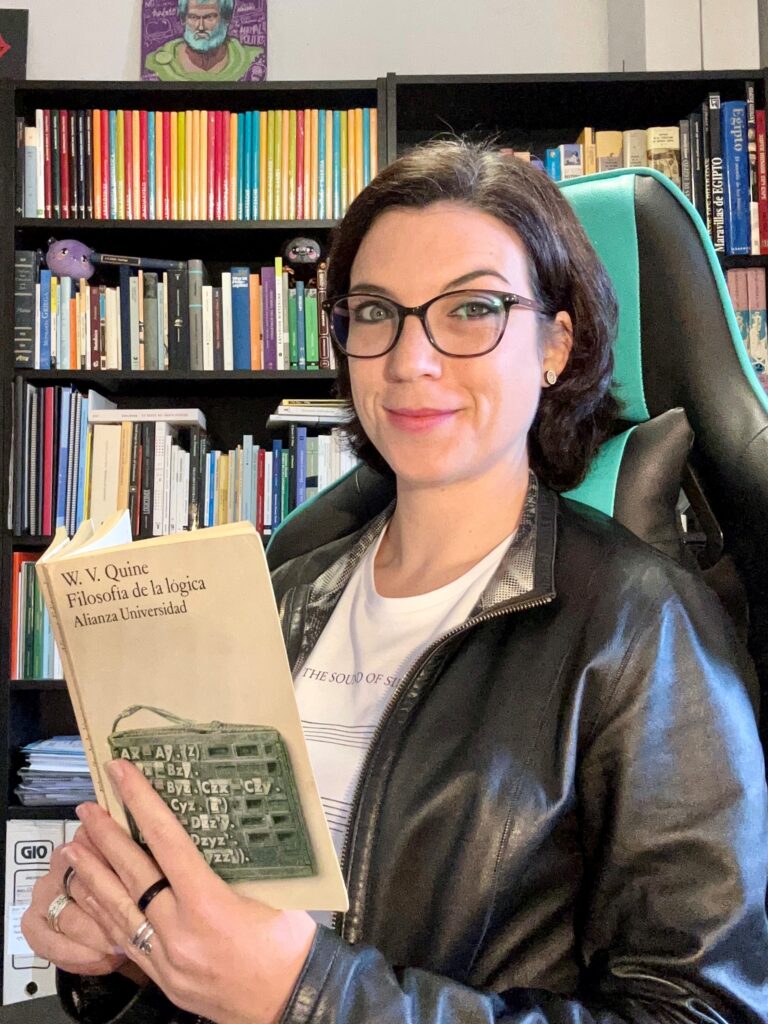
PhD in Philosophy by Málaga University since 209, in 2021 she published her first book, Awareness in Logic and Epistemology. A Conceptual Schema and Logical Study of the Underlying Main Epistemic Concepts, in Springer Verlag. Since 2014 she has published a dozen scientific papers about Epistemic and Awareness Logic, and Philosophy of Language, some of them coauthored by international researchers.
She has collaborated with different national and local research groups and projects about Applied Mathematics, Robotics and Logic. Since 2022 she is part of the group “Lógica e Inteligencia Artificial: Nuevos Desafíos y Adecuación (LIANDA)”, supported by Fundación BBVA, and, since 2023, of the project “Philosophical Debates in 20th Century Logic (PHIDELO)”. Her research lines range from Philosophy of Logic and Formal Logic, to the Philosophical Problems on Translation and other topics in Philosophy of Language.
Besides teaching different subjects on related topics, participating in international conferences, bringing her own research forward and acting as reviewer for different journals, publisher and the Spanish Agency for Research (AEI), since 2021 she combines these activities with the scientific communication giving talks in schools or participating in various entertainment or communication programmes through diverse channels.
(2024) Fernández-Fernández, Claudia y Ángel Nepomuceno Fernández, “Lógica interrogativa epistémica”, en Ensayos sobre lógica y lenguaje en honor a Alfredo Burrieza, Carlos Aguilera-Ventura, Emilio Muñoz-Velasco, Manuel Ojeda-Aciego y Antonio Yuste-Ginel (eds.), “Cuadernos de lógica, Epistemología y Lenguaje”. Londres: College Publications, pp. 53-78.
(2022) “Filosofía de lo que es mejor callar. Cuestiones Centrales de la Filosofía del Lenguaje en Homenaje a Pedro Chamizo”, Claudia Fernández-Fernández (coord.), Claridades. Revista de Filosofía, Vol. 14, Núm. 2.
(2021) Fernández-Fernández, Claudia, y Velázquez-Quesada, Fernando R. “Awareness of and awareness that: their combination and dynamics”. Logic Journal of the IGPL, Volume 29, Issue 4, August 2021: 601–626.
(2021) Fernández-Fernández, Claudia. Awareness in Logic and Epistemology. A Conceptual Schema and Logical Study of the Underlying Main Epistemic Concepts.
Volumen 52 de Serie “Logic, Epistemology, and the Unity of Science”, Springer Cham.
ISBN(tapa dura): 978-3-030-69605-4; DOI: https://doi.org/10.1007/978-3-030-69606-1
Series ISSN: 2214-9775; Número de páginas: XXI, 130.
(2020) Chamizo-Domínguez, Pedro J., y Fernández-Fernández, Claudia. “Ὑπόθεσισ e Ὑπότιθημι en las traducciones modernas de Platón”. En Caprara, Giovanni y García Alarcón, Victoria (dirs.), Estudios interdisciplinares en traducción literaria y literatura comparada, Colección Interlingua 251, Capítulo 17: 203-218. Granada: editorial Comares.
Research groups / Grupos de investigación
LIANDA (Lógica e Inteligencia Artificial: Nuevos Desafíos y Adecuación), Fundación BBVA.
PHIDELO (Philosophical Debates in 20th Century Logic), Proyecto Nacional de Generación del Conocimiento.
(Rei)vindicando lo marginal: mujeres filósofas y temáticas periféricas, Proyecto de jóvenes investigadores de la Universidad de Málaga.
cffernandez@uma.es
https://www.uma.es/departments/teachers/U0hUTU5kM2RFVk1vK1ZWSjdqVy85Zz09/
https://uma.academia.edu/ClaudiaFernándezFernández
Twitter e Instagram: @clau5anj
Umberto Rivieccio (UNED)
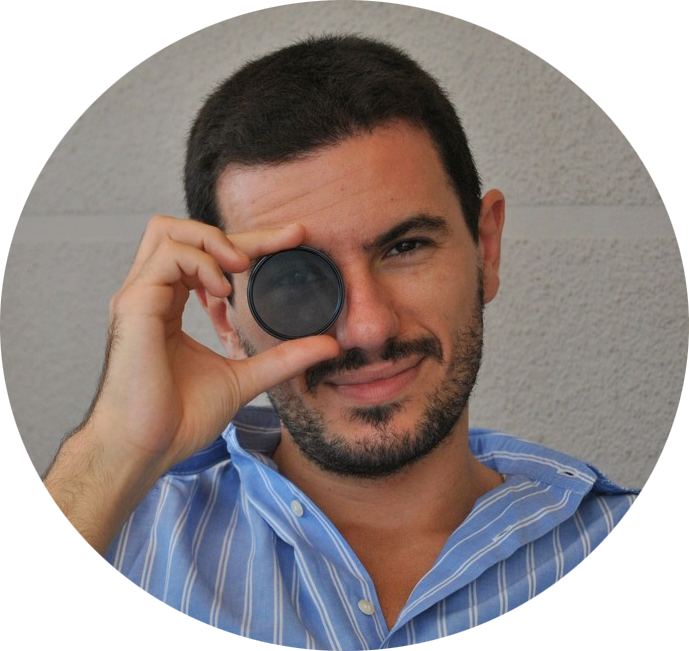
Umberto Rivieccio obtained his Ph.D. in 2010 jointly from the University of Genoa (Philosophy) and the University of Barcelona (Cognitive Science and Language), with a dissertation on bilattice-based logics. Throughout the last decade, he has been a wandering scholar, living and holding research positions at a number of universities in Europe, Asia and the Americas. He has been an Assistant Professor in Brazil until 2022 and is now based in Madrid (Spain). His main research is in the areas of algebraic logic, duality theory and non-classical logics, with a particular focus on paraconsistent logics. To this day Umberto has published approximately 50 papers in leading international journals, conference proceedings and books in the areas of theoretical computer science, universal algebra, philosophical and mathematical logic.
ORCID: 0000-0003-1364-5003
ResearchID: D-5309-2019
Scopus ID: 2663262980
(2023) Andreas Kapsner, U.R., The Value of the One Value: Exactly True Logic Revisited, Journal of Philosophical Logic, 52, pp. 1417–1444.
(2020) U.R., Zeinab Bakhtiari and Hans Van Ditmarsch, Bilattice logic of epistemic actions and knowledge. Annals of Pure and Applied Logic, 171 (6).
(2017) U.R., Hugo Albuquerque and Adam Přenosil, An algebraic view of super-Belnap logics. Studia Logica (Special Issue: 40 years of FDE), 105, 6, pp. 1051-1086.
(2017) U.R., Achim Jung and Ramon Jansana, Four-valued modal logic: Kripke semantics and duality. Journal of Logic and Computation, 27, pp. 155-199.
(2013) U.R. and Andreas Pietz, Nothing but the truth. Journal of Philosophical Logic, 42, 1, p. 125-135.
Grupo METIS: https://blogs.uned.es/metis/
Grupo MATHESIS: https://sites.google.com/view/mathesisgroup/
umberto@fsof.uned.es / umberto.rivieccio@gmail.com
https://sites.google.com/view/umberto-rivieccio/home
Víctor Aranda Utrero (UCM)

Víctor Aranda works as an Assistant Professor at the Complutense University of Madrid. His main research interest is the study of non-classical versions of Church’s simple type theory.
(2024) Aranda, V., Martins, M. & Manzano, M. Propositional Type Theory of Indeterminacy. Studia Logica. https://doi.org/10.1007/s11225-024-10099-0
(2023) Manzano, M., Huertas, A., Blackburn, P., Martins M. & Aranda, V. Hybrid Partial Type Theory. The Journal of Symbolic Logic. 1-43. doi:10.1017/jsl.2023.33
(2022) Manzano, M. & Aranda, V. Many-Sorted Logic. The Stanford Encyclopedia of Philosophy https://plato.stanford.edu/entries/logic-many-sorted/
(2022) Aranda, V. Completeness: From Husserl to Carnap. Logica Universalis, 16, 57-83.
(2020) Aranda, V. Completeness, Categoricity and Imaginary Numbers: The Debate on Husserl, Bulletin of the Section of Logic, 49(2), 109–125. https://doi.org/10.18778/0138-0680.2020.07″
Coordinador del grupo Mathesis https://sites.google.com/view/mathesisgroup
Eduardo Pérez Navarro (USC)

Eduardo Pérez-Navarro is Assistant Professor of Logic and Philosophy of Science at the University of Santiago de Compostela’s Department of Philosophy and Anthropology. He has a PhD from the University of Granada, where he has also been a postdoc. Before joining the USC, he was a Juan de la Cierva-Formación fellow at the University of Barcelona. He has also been a visiting researcher at the Institut Jean Nicod, UC Berkeley, the University of Edinburgh, and the University of Amsterdam’s Institute for Logic, Language and Computation.
He was the PI of the BBVA Foundation research project Evaluations in Disguise: A Dynamic Expressivist Account of Propaganda (DINEXPROP) and a member of the working team of four projects funded by the Spanish Ministry of Science and Innovation, PHIDELO among then. He is also a member of the University of Santiago de Compostela’s research group Episteme.
(2024) Pérez-Navarro, E. “Friends with the good: Moral relativism and moral progress.” The Philosophical Quarterly, 74(3), 886–899.
(2022) Pérez-Navarro, E. “Equal Validity or Nonneutrality? A defense of relativism.” Analysis, 82(3), 492–498.
(2022) Pérez-Navarro, E. “The way things go: Moral relativism and suspension of judgment.” Philosophical Studies, 179(1), 49–64.
(2021) Pérez-Navarro, E. “No matter who: What makes one a relativist?” Theoria: An International Journal for Theory, History and Foundations of Science, 36(2), 231–242.
(2019) Pérez-Navarro, E., Fernández Castro, V., González de Prado Salas, J. & Heras-Escribano, M. “Not expressivist enough: Normative disagreement about belief attribution.” Res Philosophica, 96(4), 409-430.
eduardo.perez@usc.es
https://usc-es.academia.edu/epereznavarro
Ángela Rocío Bejarano Chaves (UPN)

She works on the teaching of philosophy, especially in the areas of logic, language and philosophical argumentation. His main interest is in the Didactics of logic and argumentation, educational innovation and the construction of diverse classrooms, which is why he works on the axis that has been called inclusion, that is, an ethical and political dimension of the Teaching of Philosophy. It also works on the analysis of discourses through logical and critical strategies, generating philosophical, pedagogical and ethical reflections.
La lógica inferencialista como una alternativa para la enseñanza de la lógica a estudiantes
de filosofía: Un aporte para la enseñanza de la lógica a estudiantes ciegos;
Didácticas fregeanas para una lógica táctil;
Habilidades lógicas: un aporte a la reflexión sobre la educación para la paz. En Reflexiones interdisciplinarias en torno a la educación para la paz;
La lógica fregeana: una propuesta sobre la enseñanza de la lógica;
Frege: inferencia y expresión. En Lógica, Argumentación y pensamiento crítico;
“”Llueve””. Una polémica en torno a los constituyentes inarticulados.
Grupo de investigación: Filosofía y enseñanza de la filosofía, Universidad Pedagógica Nacional. Grupo de investigación: Prácticas filosóficas, Universidad Pedagógica Nacional. Parte de la Academia mexicana de lógica.
arbejaranoc@pedagogica.edu.co / angelarbejarano@gmail.com
https://scienti.minciencias.gov.co/cvlac/visualizador/generarCurriculoCv.do?cod_rh=0001376749
Mara Manzano Arjona (USAL)

Emeritus Professor, University of Salamanca, Spain. Logic and Philosophy of Science. Type Theory, Hybrid Logic, Model Theory
Visiting positions: The Group in Logic and the Methodology of Science of Berkeley (Fulbright-Hays grant, with Leon Henkin), CSLI, Stanford (with Johan van Benthem), INRIA, Nancy (with Patrick Blakcburn and Carlos Areces).
Main research interests: Logic, in particular, Extensions of First-Order Logic, (Cambridge University Press), Model Theory (Oxford University Press), Lógica para principiantes, (Alianza Editorial) and The Life and Work of Leon Henkin: Essays on His Contributions (Springer).
Pedagogical initiatives: Tools for Teaching Logic (ALFA project of UE, 1998). Tools for Teaching Logic conferences 2000-2023.
Commission on Logic Education (proposed to the Division of Logic, Methodology, Philosophy of Science and Technology in 2023)
Founding director: Programa Interuniversitario en Lógica y Filosofía de la Ciencia.
(2023) Manzano, M., Huertas, A., Blackburn, P., Martins, M., & Aranda, V. Hybrid Partial Type Theory. The Journal of Symbolic Logic, 1-43. doi:10.1017/jsl.2023.33
(2022) Manzano, María and Víctor Aranda, “”Many-Sorted Logic””, The Stanford Encyclopedia of Philosophy (Winter 2022 Edition), Edward N. Zalta & Uri Nodelman (eds.), URL = <https://plato.stanford.edu/archives/win2022/entries/logic-many-sorted/>.
(2014) Manzano, M. Huertas, A., Areces, C. y Blackburn, P. “Completeness of Hybrid Type Theory”. doi.org/10.1007/s10992-012-9260-4. Revista: Journal of Philosophical Logic. Editorial: Springer.
(2005) Manzano, M. Extensions of First-Order Logic, Cambridge University Press.
(2004) Manzano, M. y Huertas, A. Lógica para principiantes, primera edición 2004, novena reimpresión 2023 (Alianza Editorial) Intensional Logic as a Unifier: Logic, Language and Philosophy. (FFI2017-82554)
(1999) Manzano, M. Model Theory 1999 (Oxford University Press) traducción de Teoría de Modelos, 1989 (Alianza Editorial)
Intensional Logic as a unifier: Logic, Language and Philosophy (FFI2017-82554-P)
Hybrid Intensional Logic (FFI2013-47126-P)
Completeness Notions (FFI2009-09345)
Member of Commission on Logic Education, created in 2023.
Ana Rosa López Rodríguez (UGR)
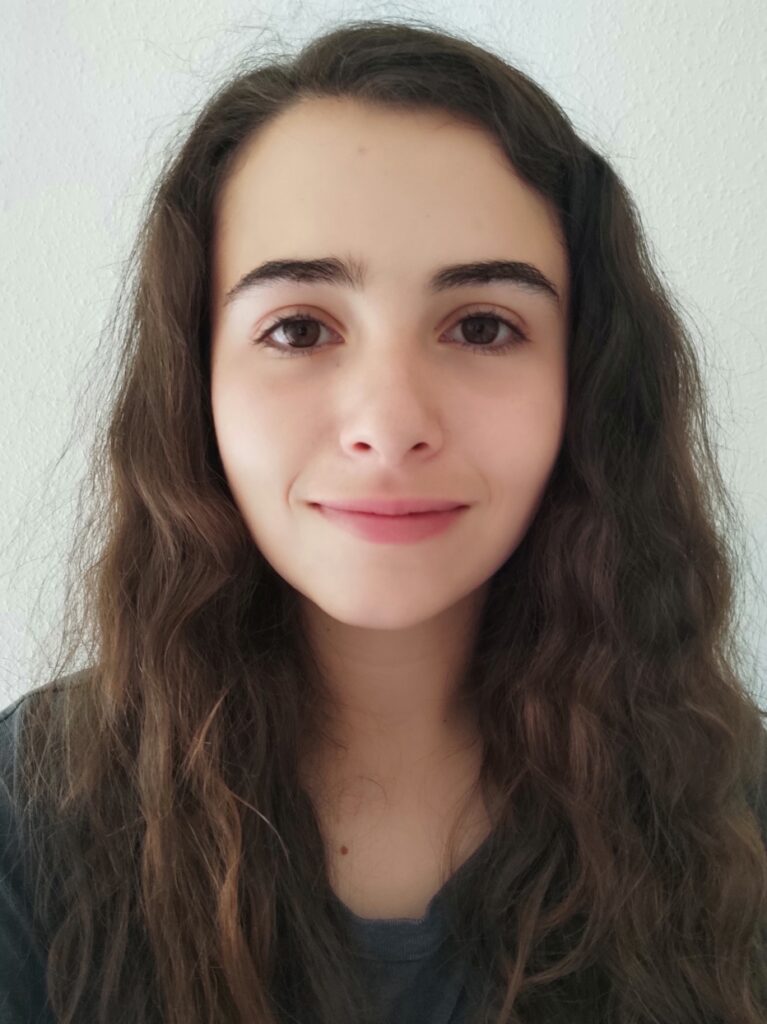
Ana Rosa López Rodríguez is a FPU predoctoral researcher at the University of Granada. Previously, she studied Philosophy at the University of Granada and completed the Master’s degree in Logic and Philosophy of Science at the same university, focusing on the logic track. Her interests revolve around philosophy of logic and philosophy of language, particularly focusing on the works of Frege, Wittgenstein, and Brandom.
Héctor Sanz Herranz (UVA)
Graduate in Mathematics (University of Valladolid), Master’s Degree in Logic and Philosophy of Science (Universities of Salamanca, Valladolid, Granada, Valencia and Santiago de Compostela), Master’s Degree in Secondary Education, Vocational Training and Language Teaching (University of Valladolid) and Master’s Degree in Quantitative Finance (University of Alcalá de Henares).
His lines of research deal with the promotion of critical thinking at an early age, as well as the relationship that this has with the didactics of Mathematics. On the other hand, he is also interested in the specific teaching of probability and statistics. His main activity is in the EdTech sector, applying artificial intelligence to maximise student learning.
Pablo Sánchez Oliva (UGR)

Predoctoral researcher at the University of Granada. He studied the Interuniversity Master’s Degree in Logic and Philosophy of Science, defending a Master’s Thesis entitled Limitaciones lingüísticas para la expresión de proposiciones. Una discusión en la metamatemática y la filosofía del lenguaje. He is currently working on his doctoral thesis, focused on the philosophical analysis of the meaning and interpretation of the limitation theorems of contemporary logic. He has presented several of his works both in workshops and at national and international conferences. Some of them are:
Expresividad vs Completitud: Axiomatizaciones de la aritmética
(Día Mundial de la Lógica 2023)
A pragmatist approach to the relation between mathematics and logic
(with David Sánchez) (Norwich, 2024)
Crítica de la Razón Formal: Kant y la metamatemática (SEKLE, 2024)
Towards An Expressivist Neologicism: Frege And The Pragmatic Mediation Between Logical And Mathematical Language (with David Sánchez) (Roma, 2024)
pab.sanchezoliva@gmail.com / psanchezoliva@ugr.es
https://ugr.academia.edu/PabloS%C3%A1nchezOliva
Llanos Navarro Laespada (USAL)
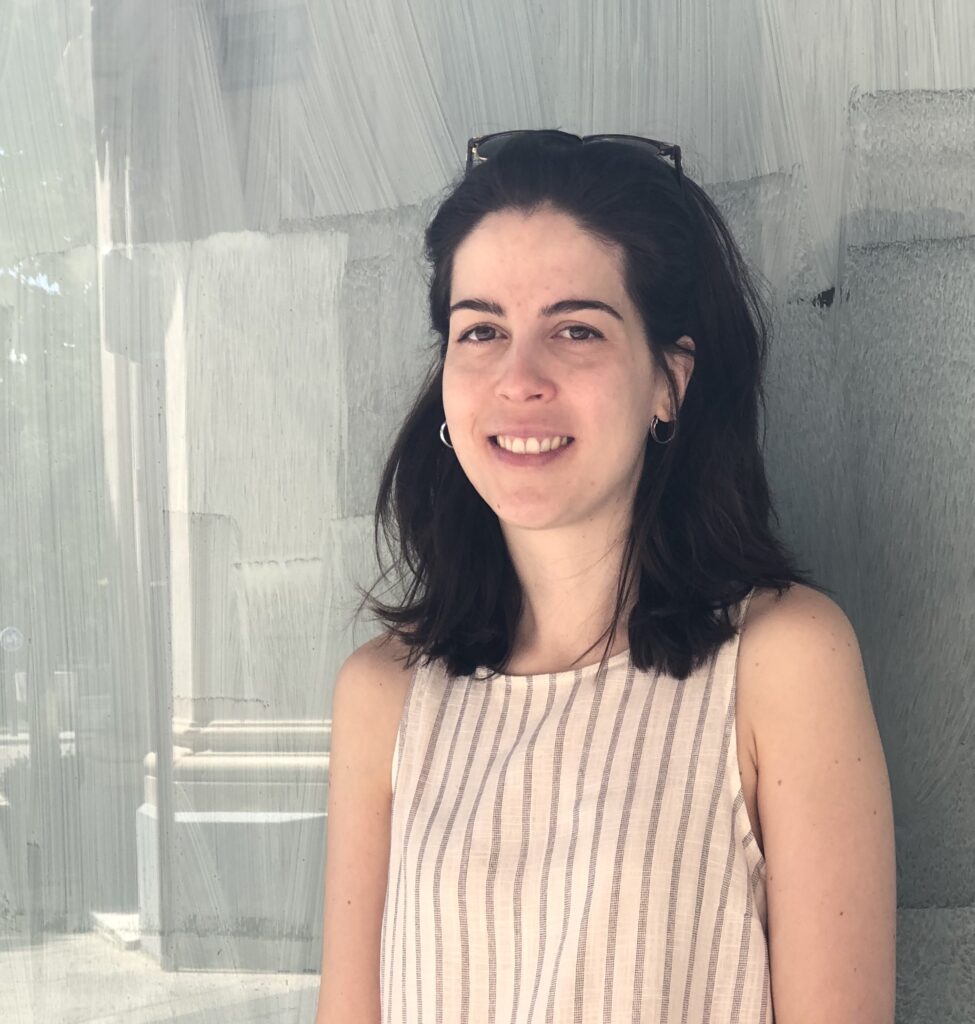
Substitute Professor of Logic in the Department of Philosophy, Logic and Aesthetics at the University of Salamanca. Previously, she was a pre-doctoral researcher at the University of Granada, where she obtained her PhD in 2023. Her research is in the field of philosophy of language, with a special interest in non-descriptivist theories of the meaning of ethical discourse. She is also interested in contemporary debates on epistemic injustice.
Llanos Navarro (2022). Where are ethical properties? Predication, location, and category mistake. En N. Sara Miras y M. Bella (Eds.), Women in pragmatism: past, present and future (pp. 97-109). Springer. DOI: https://doi.org/10.1007/978-3-031-00921-1_8
Manuel Almagro, Llanos Navarro y Manuel de Pinedo (2021). Is testimonial injustice epistemic? Let me count the ways. Hypatia: A Journal of Feminist Philosophy, 36(4), pp. 657-675. DOI: https://doi.org/10.1017/hyp.2021.56
María J. Frápolli y Llanos Navarro (2021). I am large, I contain multitudes: Epistemic pragmatism, testimonial injustice and positive intersectionalism. Daimon. Revista Internacional de Filosofía, 84, pp. 115-129. DOI: https://doi.org/10.6018/daimon.481931
llanosnavarro@usal.es
Antônio Mesquita (UAM)

Predoctoral Research Fellow and PhD candidate in Philosophy and Language Sciences at the Autonomous University of Madrid. M.A. in Logic and Philosophy of Science (2022-2023) at the Universities of Valladolid, Salamanca, and Granada (Spain). M.A. in Philosophy (2021-2023) and B.A. in Philosophy (2016-2020) at the Federal University of Goiás (Brazil). His research focuses on the Philosophy and History of Logic.
(2021) Mesquita Neto, A. Proofs by Reductio ad Impossibile in Aristotle’s Prior Analytics. Journal of Ancient Philosophy, 15(2), 53-76. https://doi.org/10.11606/issn.1981-9471.v15i2p53-76
antonio.mesquita@uam.es
https://uam.academia.edu/Ant%C3%B4nioMesquita
José Andrés Forero Mora (UMD)
Professor of Philosophy at the Corporación Universitaria Minuto de Dios. Doctor of Philosophy from the Universidad de los Andes. Director of the Research Group Thought, Philosophy, and Society, recognized and classified by the Colombian Ministry of Science (MINCIENCIAS). His interests include logic and argumentation, philosophy of language, contemporary theories of truth, and deep disagreements.
(2023) Compromisos aseverativos. THEORIA. An International Journal for Theory, History and Foundations of Science 38 (1):107-125.
(Con Ángela Bejarano y Jesica Álvarez) (2022) “La lógica inferencialista como una alternativa para la enseñanza de la lógica a estudiantes de filosofía: Un aporte para la enseñanza de la lógica a estudiantes ciegos”. Maximiliano Prada (ed.). Didácticas emergentes de la filosofía. UPN, Bogotá.
(2022) Más allá de Geach: un espacio para los expresivismos. Tópicos: Revista de Filosofía 64:11-39.
(con María José Frápolli) (2021) “Show me. Tractatrian non-representationalism”. Teorema 40 (2), 63-81
(Con Jesica Álvarez) (2020) “Un análisis lógico-semántico del recuerdo” Disputatio. Philosophical Research Bulletin. 9 (15), 107-129.
Grupo de Investigación: Pensamiento, Filosofía y sociedad, (UNIMINUTO); Semillero de investigación: Lenguaje, mente y formas de vida (UNIMINUTO)
andforero@gmail.com / jforero@uniminuto.edu
https://uniminuto.academia.edu/JoseAndresForeroMora
Kurt Wischin

Kurt Wischin had his first formational contact with academic philosophy in Vienna during the 1970s. He moved to Mexico in 1975 and worked there for the next 30 years in fields other than philosophy. He returned formally to philosophy in 2004, obtaining a BA at the Autonomous University of Querétaro in 2008, an MPhil at the Autonomous National University of Mexico in 2015 and a PhD at the University of Granada, Spain in 2023. His work in philosophy takes as its starting point the philosophy of Wittgenstein, in particular as condensed in Philosophical Investigations. His current investigative activities are focused on the foundational years of the contemporary philosophy of logic and language, putting special emphasis on the development of Frege’s doctrine and its influence on the formation of the Tractatus, as well as generally early analytical philosophy. He participated as the editorial secretary and as an editor in Disputatio. Philosophical Research Bulletin from 2017 to 2023, editing, among others, a special issue covering the philosophies of Wittgenstein and Brandom and two editions celebrating the Centennial of the publication of the Tractatus, the second part together with Pasquale Frascolla. He has written various journal articles, book chapters, translations, and academic reviews.
(2023) Wischin, K. “Frege’s Third Realm and the Structure of Thought.” Disputatio. 12, 25 (Sep. 2023), 221-246.
(2021) Wischin, K. “Sentido, significado y el principio de contexto en Frege.” Disputatio. 1, 2 (jul. 2021), 94-104. DOI:https://doi.org/10.5281/zenodo.5068226.
(2019) Wischin, K. “On Frege’s Legacy in the Later Wittgenstein and Brandom.” Disputatio. 8, 9 (Jun. 2019), 375-407. DOI:https://doi.org/10.5281/zenodo.3479784.
(2017) Wischin, K. La justificación de las inferencias. “Frege y el Tractatus 5.132.” Disputatio. 6, 7 (dic. 2017), 385-421. DOI:https://doi.org/10.5281/zenodo.1414626.
(2015) Wischin, K. “Los orígenes de la filosofía analítica y la trivialización de la filosofía.” Disputatio. 4, 5 (dic. 2015), 175-190. DOI:https://doi.org/10.5281/zenodo.3551732.
Marta Fernández Naranjo (UGR)

I hold a degree in Philosophy from the University of Málaga and an Interuniversity Master’s Degree in Logic and Philosophy of Science. Additionally, I have completed 84 ECTs of the Mathematics Degree at the University of Granada. My main research interests include the philosophy of mathematics, the philosophy of logic, and the history of mathematics, with a focus on the foundations of mathematics and their relationship with the physical world.
Antonio Sáez Marín (USAL)
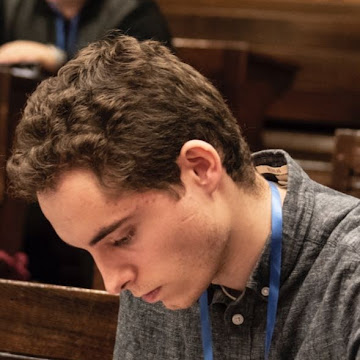
Antonio Sáez Marín studied Physics at the University of Santiago de Compostela, and graduated from the MA in Logic and Philosophy of Science at the University of Salamanca, with specialization in Logic. His Master’s Thesis, “Between inconsistency and triviality: A critical revision of the arguments about the principle of explosion”, was supervised by professor María José Frápolli. He is currently studying a MA in Education at Compostela, while he collaborates in projects related to logic, physics and their respective philosophies, before starting his PhD studies.
Contradictions and paraconsistency, the foundations of physical theories or the application of physics techniques to the social sciences.
Collaboration with: Episteme Group of Logic and Analytic Philosophy, Group of Non-Linear Physics (University of Santiago de Compostela).
Universidad de Santiago de Compostela (USC), Estudiante de Máster en Lógica y Filosofía de la Ciencia, con especialidad en Lógica. Graduado en Física.
Instagram: @tonysaezm / Facebook y LinkedIn: Antonio Sáez Marín
Antonio Juste Ginel (UMA)
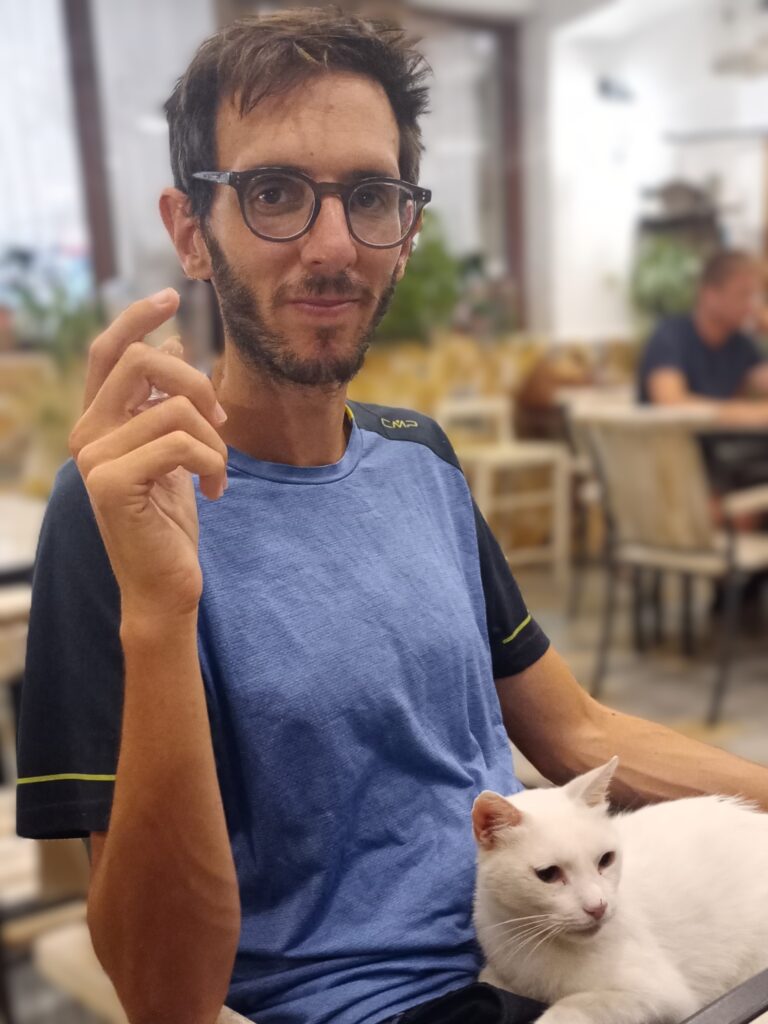
I work as an assistant professor at Complutense University (Madrid). I deeply enjoy teaching logic. My research focuses on modal logic (especially on its dynamic and epistemic interpretations) and formal argumentation (mainly on Dung’s graphs and ASPIC+). My broad interests cover all branches of formal philosophy.
Lagasquie-Schiex, M. C., Mailly, J. G., & Yuste-Ginel, A. (2024). How to manage supports in incomplete argumentation. In International Symposium on Foundations of Information and Knowledge Systems (pp. 319-339). Springer.
Yuste-Ginel, A., & Herzig, A. (2023). Qualitative uncertainty and dynamics of argumentation through dynamic logic. Journal of Logic and Computation, 33(2), 370-405.
C. Proietti, F.R. Velázquez-Quesada, & A. Yuste-Ginel. An abstract look at awareness models and their dynamics. In Theoretical Aspects of Rationality and Knowledge (pp. 455–469). EPTCS.
Proietti, C., & Yuste-Ginel, A. (2021). Dynamic epistemic logics for abstract argumentation. Synthese, 199(3), 8641-8700.
Burrieza, A., & Yuste-Ginel, A. (2020). Basic beliefs and argument-based beliefs in awareness epistemic logic with structured arguments. In Computational Models of Argument (pp. 123-134). IOS Press.
Grupo UCM 930174 – LENGUAJE, PENSAMIENTO Y REALIDAD.
Grupo UCM.- MATHESIS
Proyecto US.- Métodos lógicos y abductivos aplicados a la semántica y la pragmática de la interacción comunicativa (equipo de trabajo).
https://sites.google.com/view/antonioyusteginel
antonioyusteginel@gmail.com
